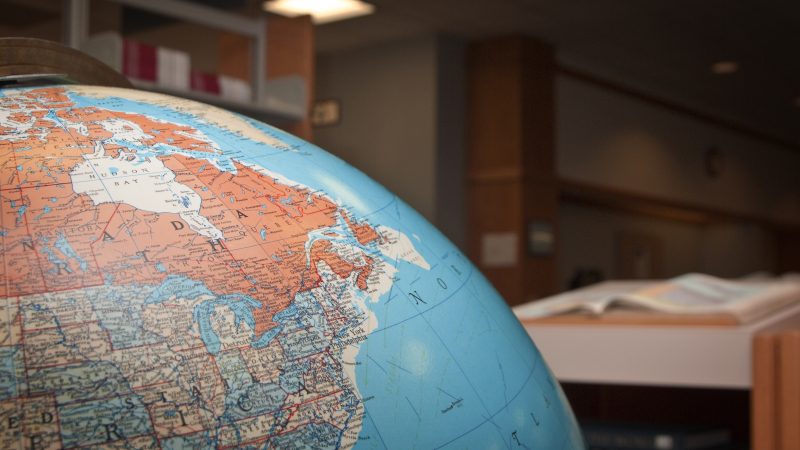
When you have the opportunity to experience places outside of Tuscaloosa for both domestic and international travel, we encourage you to review these safe travel suggestions before your trip.
Before You Go
- Research basic information about your destination.
- Leave a copy of your itinerary with a trusted family member or friend.
- If you are driving, make sure your vehicle is in good working order.
- Locate routes, attractions and essential services before you leave.
- Faculty and staff should consider using a vehicle from UA Fleet Services. These vehicles are well-maintained and include roadside assistance.
International Travel
- You need a current, valid passport if you are traveling outside the United States. Visit the U.S. State Department’s website to apply for or renew your passport.
- In addition to a passport, you may need a visa to visit some countries. Contact the embassy of the countries you will be visiting to learn if you need a visa.
- If you plan to drive in another country, check to see if your driver’s license is valid abroad. You may also need an International Driving Permit or a translation of your U.S. driver’s license.
- Find the local U.S. consulate or embassy’s address and phone number by visiting the U.S. State Department’s website.
- Sign up for the Smart Traveler Enrollment Program to get travel advisories from the U.S. State Department for the country or countries where you will be traveling.
- Research basic information about the country you will be visiting. Check with the U.S. State Department to see if there are any warnings or advisories you should consider before traveling.
- Become familiar with some basic words or phrases in the language of the country or countries you plan to visit.
- Make photocopies of your passport, airline tickets and visa. Carry one set of copies with you in a safe place and leave another set of copies at home with a trusted family member or friend.
- Check with your insurance provider to see if you need additional travel health and accident insurance. Learn more about how to protect your health while traveling abroad.
- Some countries have restrictions on the things you can bring with you or take home with you.
- There may be restrictions on certain items that you are allowed to bring back into the United States from other countries. You can find a list of prohibited items on the U.S. Customs and Border Patrol website.
- If you plan to use your mobile phone while traveling abroad, check with your service provider to ensure your plan offers coverage in the areas you plan to visit.
- Plan for the possibility that your mobile phone will be damaged, lost or stolen. Write down names and telephone numbers of important contacts and keep this information in a safe place separate from your phone.
Getting Packed
- Bring enough prescription medication with you to last the duration of your trip. Keep all prescriptions in the container provided by your pharmacy as confirmation the prescription is valid.
- If you wear glasses or contacts, bring an extra pair with you.
- Don’t pack or bring any prohibited items, such as weapons, sharp objects or dangerous substances.
- Limit the amount of cash and credit cards that you carry to only what is necessary.
- Don’t pack or bring valuables.
- Place a luggage tag that includes your name and phone number on all of your bags.
- Remember the rules about what you can carry on an airplane and what must be placed in your checked baggage. Visit the Transportation Security Administration’s website for information.
At the Airport and in the Air
- Never leave your baggage unattended.
- Don’t let anyone other than airport staff members handle your luggage.
- Don’t accept packages from strangers.
- Report any suspicious activities.
- Follow all safety and security rules and instructions.
On the Road
- Plan your route in advance.
- Never drink and drive, and don’t ride with anyone who has been drinking.
- Don’t drive if you feel drowsy. Take a break every three to four hours.
- Don’t text and drive.
- Be aware of road conditions and your surroundings. Check the weather and traffic before you depart.
- Park in well-lit and well-traveled areas.
- Keep your car’s doors locked. Keep valuables and luggage out of sight.
- If you have car trouble, only accept help from police or other authorized personnel.
In Your Hotel
- Seek hotels that have room access via interior hallways and with controlled access during the evening hours.
- Keep your room door locked at all times and use deadbolts or other added hardware as an added measure of protection.
- Ask visitors to meet you in the lobby or other public spaces in your hotel.
- Use the hotel safe to store your valuables.
- Don’t get into an elevator alone with suspicious strangers.
- If you feel unsure, ask the hotel staff about safety and security policies.
Out and About
- Pay attention to your surroundings.
- Don’t take more cash or credit cards than you need.
- Don’t accept rides from strangers.
- Avoid large crowds, demonstrations or public confrontations.
- Keep a low profile.
- Don’t drink too much.
- If you are with a group, stay with the group and never leave anyone behind.
- Stay in well-lit and well-traveled places.
- Don’t show your cash or other valuables.
- Don’t discuss your travel plans with strangers.
- Find the location of the nearest police station, hospital and other safe places.
- Report any suspicious activity to the police.
- If you are robbed, don’t resist. Call the police as soon as you are able.
